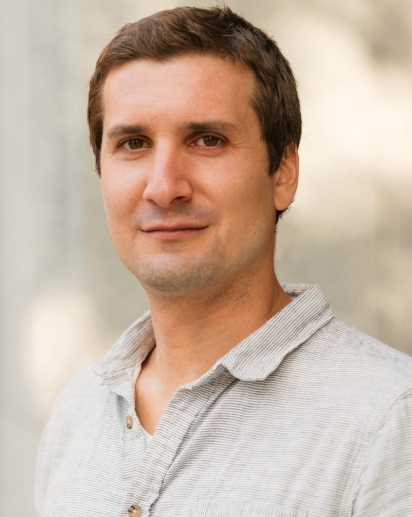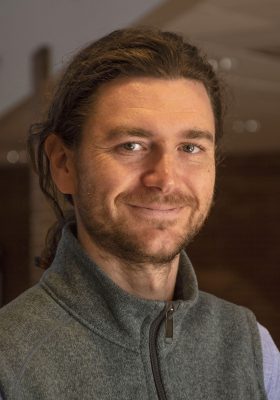May 21st speakers: Paul Robustelli and Thomas Boothby
Date:
On Thursday May 21st Dr. Robustelli and Dr. Boothby spoke about using simulations to understand molecular recognition and the physical basis for stress tolerance in tardigrades, respectively.
NOTE: Dr. Allan Drummond was originally scheduled to speak but was forced to cancel. Allan will join us again in the fall.
Molecular recognition mechanisms of intrinsically disordered proteins
Dr. Paul Robustelli (Dartmouth University)
Assistant Professor, Department Chemistry
The Robustelli group develops and applies computational methods to obtain atomic-level descriptions of the functional motions of biomolecules, with a particular interest in intrinsically disordered proteins. They utilize molecular simulations to obtain atomistic descriptions of the molecular recognition mechanisms of intrinsically disordered proteins, and aim to use insights form these simulations to understand, predict and ultimately design new dynamic and heterogeneous binding interactions. A current focus of the laboratory is understanding the thermodynamic driving forces of small molecule ligands binding to disordered protein sequences, with the goal of rationally designing tighter and more specific binders.
Given unpublished data was presented, please contact Dr. Robustelli directly for access to a recording of this talk.

The role of IDPs in tardigrade desiccation tolerance
Dr. Thomas Boothby (University of Wyoming, USA)
Assistant Professor, Molecular Biology
The Boothby lab is interested in the fundamental mechanisms of extreme stress tolerance. The lab uses tardigrades (water bears!) as a model system to identify and characterize novel mediators of stress tolerance. The lab’s research combines molecular and cell biological techniques, with next-generation sequencing, biochemistry, bioinformatics, analytical chemistry, and genetic engineering.
Given unpublished data was presented, please contact Dr. Boothby directly for access to a recording of this talk.

Time:
Los Angeles: 10:00 AM - Chicago: 12:00 PM - New York: 1:00 PM
London: 6:00 PM - Paris: 7:00 PM - Moscow: 8:00 PM
Delhi: 10:30 PM - Beijing: 1:00 AM (Friday) - Sydney: 3:00 AM (Friday)
